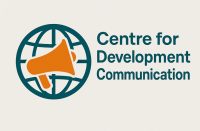The shift from Rapid Rural Appraisal (RRA) and Participatory Rural Appraisal (PRA) to Participatory Learning and Action (PLA) in our Community Justice Project has been nothing short of transformative. What began as an effort to address long-standing insecurity became a powerful journey of community empowerment, dialogue, and peacebuilding.
For years, local authorities in Kogi State, North-Central Nigeria, relied on RRA and PRA to gather information on rural security challenges, particularly the recurring conflicts between farmers and herders. While well-intentioned, these methods focused largely on extracting data rather than meaningfully engaging communities. People were treated as informants, not as co-creators of solutions.
Again and again, these conventional approaches fell short. Violence persisted. Communities remained divided. Trust was nowhere to be found.
Recognizing these limitations, we introduced Participatory Learning and Action (PLA) in the Ogboyaga community, Igalamela/Odolu Local Government Area, and everything began to shift.
Unlike RRA or PRA, PLA is not about collecting answers and moving on. It’s about staying, listening, learning, and building together. PLA created a platform where everyone had a voice: farmers, herders, youth, women, elders, and community leaders.
Through inclusive, open dialogue sessions, we didn’t just diagnose the conflict; we created space for empathy, negotiation, and collaboration. The community was no longer being studied; it was mobilized. Outsiders and insiders became genuine partners. Knowledge was shared, not extracted. Solutions were homegrown, not imposed.
Today, in Ogboyaga, farmers and herders are no longer adversaries. They are neighbors, people who understand their shared environment, responsibilities, and futures. Peace is no longer a distant hope. It is a lived reality, built by those who once stood on opposite sides.
This is more than a story of resolution. It’s a call to reimagine how we engage with communities facing deep, complex challenges. PLA doesn’t just gather data, it restores dignity, rebuilds trust, and lays the foundation for lasting, locally owned change.
Audu Liberty Oseni
Director, Centre for Development Communication
